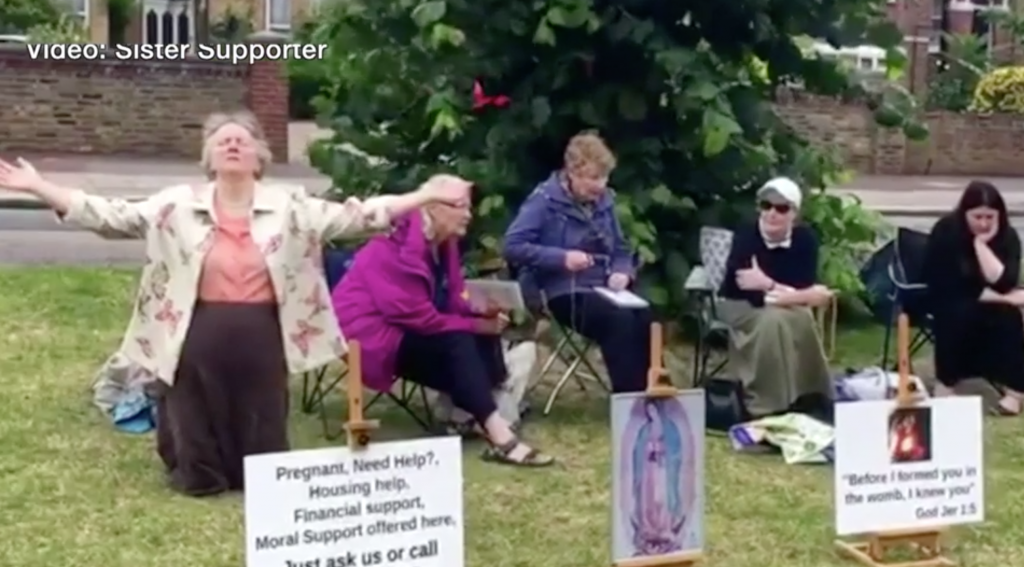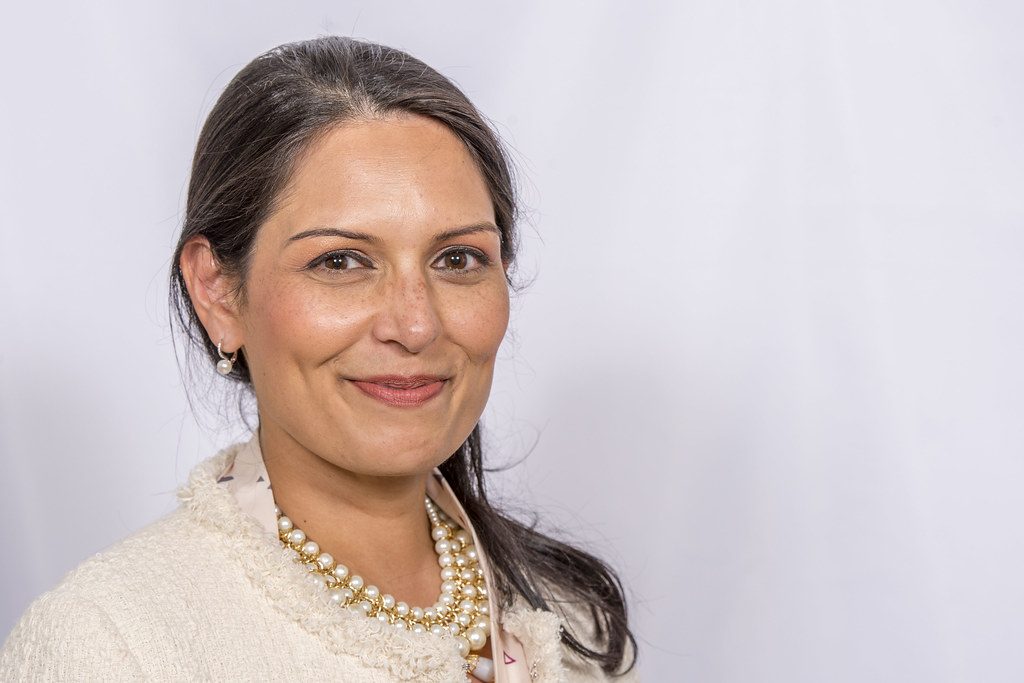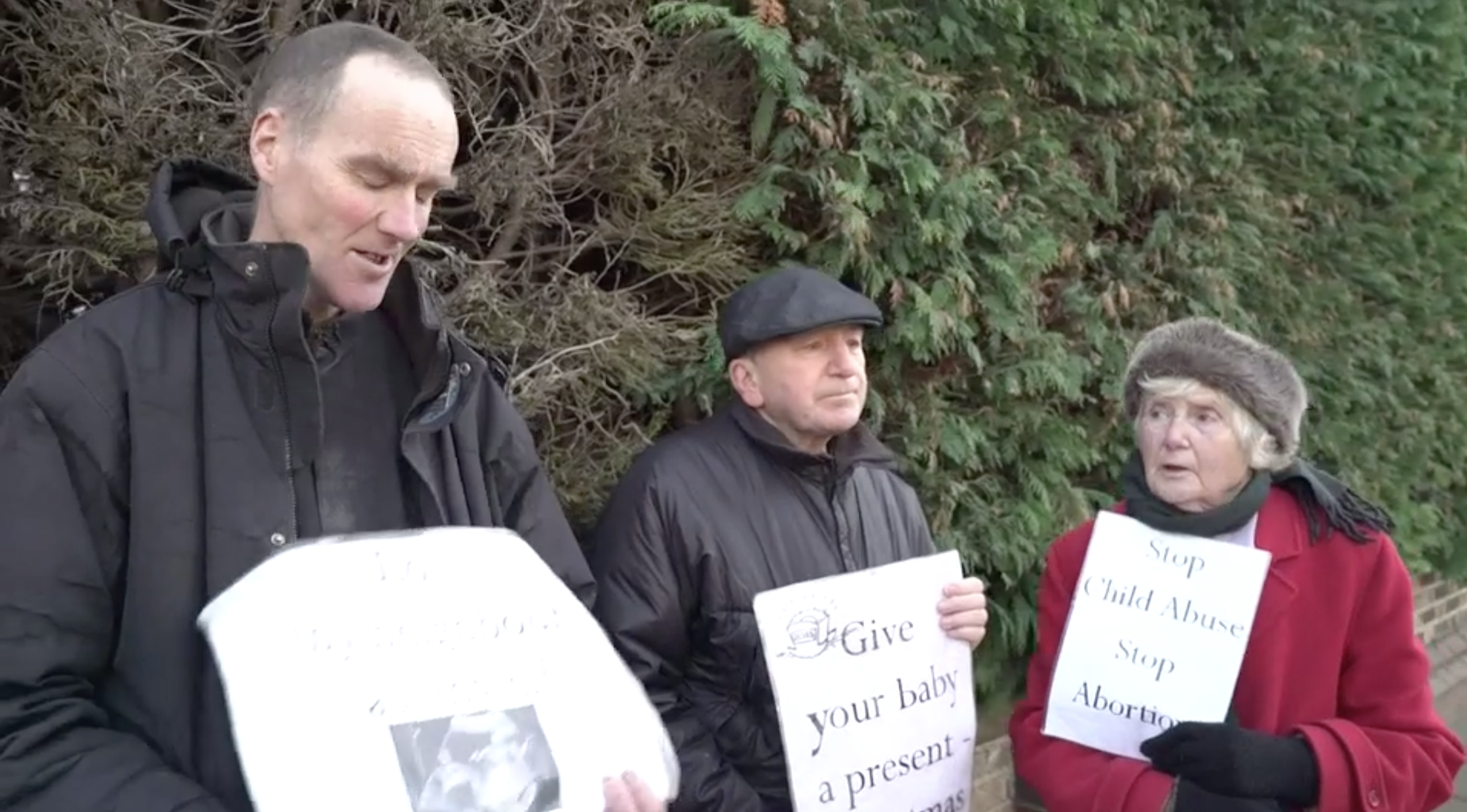Campaigners have renewed calls for the government to create “safe-zones” around abortion clinics across the country after the Court of Appeal upheld a ban on pro-life protests near a west London health centre.
Ealing Council last year introduced the UK’s first ever exclusion zone banning anti-abortion protests within 100-metres of a clinic run by charity Marie Stopes after women complained of being harassed.
The Good Counsel Network (GCN), a Christian group which held vigils outside the clinic, denied intimidating women and argued that the ban breaches their rights including freedom of religion, expression and assembly.
Three Court of Appeal judges on Wednesday (21 August 2019) unanimously dismissed the group’s appeal to have the ban overturned.
It was always very clear to us that this anti-abortion activity outside the clinic was targeted street harassment towards pregnant women, but that it fell through the gaps of current harassment law.
Sally O’Brien, Marie Stopes west London centre manager
The Court of Appeal concluded that the council’s imposition of a public spaces protection order (PSPO) in 2018 was a “proportionate” restriction on the rights of those in the GCN, in order to protect the privacy of those using the clinic from interference by protesters seeking to intercept them and dissuade them from attending appointments.
Sally O’Brien, manager of Marie Stopes west London centre, said: “It was always very clear to us that this anti-abortion activity outside the clinic was targeted street harassment towards pregnant women, but that it fell through the gaps of current harassment law.
“We’re very happy that the judges have seen this too and ruled in favour of safe access to care.”
‘They Have Images Of Dead Foetuses On Show’

Footage of pro-life protestors filmed by pro-choice campaign group Sister Supporter. Image Credit: Sister Supporter.
The court heard reports, collected by the centre, of how the protests have had a detrimental impact on women’s lives.
“The pictures displayed by those opposing abortion are truly awful,” said a passer-by. “I walk past my local clinic with my children and they have images of dead foetuses on show. They create an awful environment for local residents.”
A local resident added: “It is extremely stressful living opposite these protests. It is a regular occurrence seeing protestors standing in the way of clinic users, grabbing their arms and shouting at them… Do I comfort the crying women on the street, or do they prefer privacy?”
In 2015, campaign group Sister Supporter began to mount counter-protests against the GCN and two years later submitted a 3,500-signature petition calling on the local council to ban protestors from the vicinity of the centre.
The court heard the situation “generated an atmosphere of tension” and clinic users had reported “intimidation, harassment and distress”.
Ealing Council introduced the PSPO after conducting a consultation which attracted more than 2,000 online responses – with 83 percent of them agreeing with the scope of the safe zone.
However the GCN’s Alina Dulgheiu and Andrea Orthova, who regularly attend vigils, mounted a legal challenge to the PSPO, first at the High Court and then at the Court of Appeal.
They argued that the ban on protesting within the designated zone breached their rights to freedom of expression, freedom of religion and freedom of association – protected by Articles 9, 10 and 11 of the Convention of Human Rights.
They also claimed that PSPOs were designed to protect people living nearby – rather than one-off clinic users – from anti-social behaviour.
However, the judges ruled that “a PSPO was necessary to strike a fair balance between, on the one hand, protecting those important interests of the service users and, on the other hand, the rights of the protestors”.
They acknowledged that “the activities of GCN and the other protest groups outside the centre had a detrimental effect on the quality of life of those visiting the centre which was, or was likely to be, of a persistent or continuing nature”.
‘A National Problem In Need Of A National Solution’

Home Secretary Priti Patel. Image Credit: Flickr / 10 Downing Street.
PSPOs were introduced in 2014 to increase local authorities’ powers to tackle anti-social behaviour. They enable councils to make certain predefined activities prosecutable offences within a specific geographic area.
Ealing Council became the first in the country to use this legislation to ban pro-life protesting outside an abortion clinic.
But Clare Murphy, director of external affairs at the British Pregnancy Advise Service (Bpas), argues that national legislation is required to protect those using abortion clinics across the country.
“The harassment and intimidation of women and abortion clinic staff remains a national problem in need of a national solution,” she said.
“It is unrealistic to expect individual councils, who are already under immense budgetary pressure, to dedicate significant time and resources to pursuing local PSPOs against what is a national problem which may indeed worsen within the next few weeks.”
She highlighted that campaign group 40 Days For Life will begin six weeks of continuous “vigils” outside abortion clinics across the country in September. “The numbers of activists may be small, as we are an overwhelmingly pro-choice country, yet they can nevertheless have a profoundly negative impact on women.”
She added: “We urge the new Home Secretary Priti Patel to listen to the voices of women, medical bodies, and women’s rights organisations, and look again at the case for national legislation”.
In September last year, former Home Secretary Sajid Javid said introducing national buffer zones “would not be a proportionate response”, stating that this type of protest is a minority.
Want to learn more on this topic?
- Read about MPs voting to liberalise abortion laws in Northern Ireland.
- Learn what happened when restrictive abortion laws were challenged at the Supreme Court.
- Take a look at our infographic: what human rights do for speech and protest.







